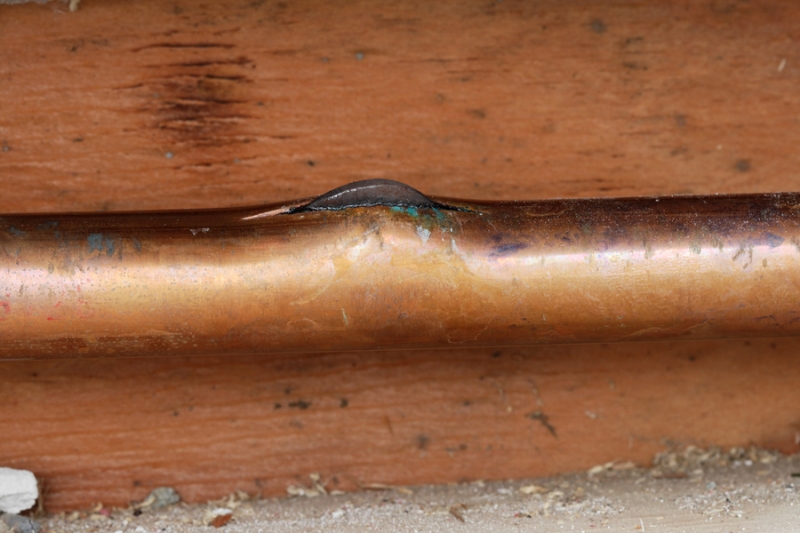
How a frozen pipe bursts
There are various property maintenance problems that all landlords should be aware of during the winter months. A frozen water pipe is a big issue that might arise when the temperature drops.
It is a concern since it prevents water from flowing. However, there is another problem to consider: when pipes freeze, they may burst. Plumber Galway helps you avoid costly pipe replacement repairs and the risk of floods and water damage. This article will look at the reasons for pipe bursts and what to do if one occurs.
What causes a frozen pipe to burst?
Exposure of pipes to a temperature below the freezing point for an extended period may result in pipe bursting.
When water freezes, it expands by 9% in volume. When this occurs in a closed pipe, the ice displaces the water, causing the pressure to rise exponentially. The line will rupture if this is allowed to continue for too long.
According to Paul Abrams, a Roto-Rooter spokesman, not all frozen pipes explode. Frozen pipes do not always burst, despite how common they are. When the ice thaws, the risk increases and is frequently increased as pressure rises, making pipe bursting more common near the end of the winter or in the spring.
In addition, the more water flowing through the pipe, the more likely it is to burst. Flooding, sewage backup, mould growth, structural damage, and other problems could result from a ruptured pipe.
Preventing the Bursting of Frozen Water Pipes
Taking proper precautions to prevent pipes from freezing in the first place is the most straightforward approach to avoid them bursting. When it becomes cold, you can do a few things to keep pipes from freezing and breaking, but there’s no practical way to heat the ground surrounding your house.
To begin, make sure your residence is at least 55 degrees Fahrenheit. Turn off your water with the shut-off valve if you’ll be gone for an extended period to avoid freezing and bursting pipes.
Another way to prevent your pipes from bursting is to keep them adequately insulated. Use a heated reflector lamp or expanding foam to insulate indoor pipes in cold regions such as garages, attics, or basements.
Precautions You Can Take To Avoid Bursting Your Water Pipes
Offset the water supply
When frozen pipes burst, the first thing you should do is turn off your home’s water supply. The primary shut-off valve is usually located within the home, just across from the entrance to the outer pipe. Look for an outside cut-off valve near your metre if you need to switch off your property’s whole water system.
Apply heat tape
Heat tape is a product you may put in and will warm pipes as needed throughout the winter season. While you could handle it yourself, it’s a good idea to seek advice from a plumber to learn some best practices.
Contact a Professional
You should call a plumber or another professional if you can’t thaw the pipe yourself or a line explodes. They’ll be able to guide you with your problem.
Start drying out
One of the most important and cheapest items for soaking up water is old newspapers. To wick up pools and ponds on the floor, put down layers.
Dehumidifiers and fans can assist speed up the drying process. Open windows in affected rooms if it is not too chilly or damp outside.
Pay attention to the ceilings. Overhead frozen burst pipe leaks frequently collect over time, posing a severe threat.
Final Thoughts
It can be frustrating to deal with frozen pipes. Not only can implementing a few basic practices while using heat sources help you address your freezing pipe problem, but it will also keep your family safe. If you experience frozen pipes in winter, contacting a professional plumber galway is the best approach. They’ll fix your pipes without risking a rupture.


